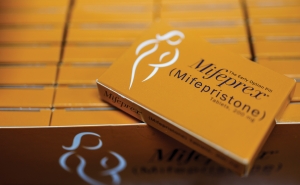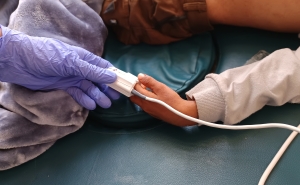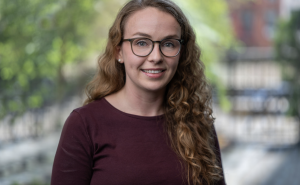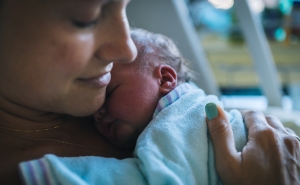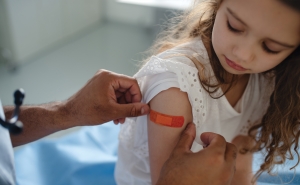Breastfeeding and COVID-19 Vaccines
Is it safe for people who are breastfeeding to receive the COVID-19 vaccine? The CDC and our experts give updated guidance.
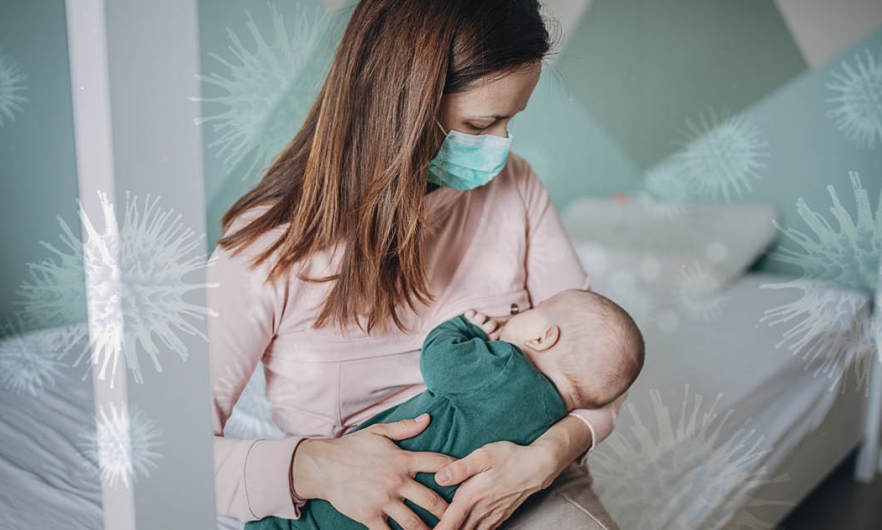
A Q&A with Ruth Karron and Ruth Faden
On August 11, the CDC updated COVID-19 vaccine guidance for individuals who are pregnant or breastfeeding. Pregnant and recently pregnant people are at an increased risk for severe illness from COVID-19 when compared with non-pregnant people. But getting an mRNA COVID-19 vaccine during pregnancy reduces these risks—and may provide some protection for breastfed babies as well.
In this Q&A, Ruth Karron, MD, a pediatrician trained in infectious diseases, and Ruth Faden, PhD, MPH, an expert in biomedical ethics, answer some questions about the safety and concerns of getting vaccinated while breastfeeding and the benefits breast milk may provide to infants.
Is it safe to breastfeed after receiving a COVID-19 vaccine?
RK: From the time these vaccines were authorized back in January and February, the American College of Obstetricians and Gynecologists and the Society for Maternal-Fetal Medicine made clear in all their publications that there was no reason to believe that there would be any problems associated with vaccinations and breastfeeding. There [were] discussions about safety during pregnancy, but there was never any concern voiced by any professional about safety during lactation/breastfeeding.
According to the CDC, recent reports have shown that breastfeeding people who have received mRNA COVID-19 vaccines have antibodies in their breast milk. What might this mean for breastfed babies?
RK: There are publications that have looked at antibodies in breast milk from vaccinated individuals and have been able to detect those antibodies. We don’t have data that say definitively that these antibodies will therefore provide protection to the baby, but by analogy with other diseases we can imagine that that could be the case. We can’t promise additional benefits in terms of vaccinated women choosing to breastfeed their babies—[but] there is some evidence that that antibody is transferred, and we would think that would be a good thing.
If I am breastfeeding, can I assume that my baby is also protected?
RF: People who are nursing and are vaccinated should not assume that their babies are somehow as protected as if they were vaccinated directly.
RK: Breastfeeding individuals should err on the side of caution and assume their baby is just as susceptible to COVID as a baby whose mother wasn’t vaccinated or wasn’t breastfeeding. They should not assume that there’s protection.
Should I decide to breastfeed because of the antibodies I could pass along to my baby after receiving the vaccine?
RK: COVID and COVID vaccination status should not weigh at all into people’s decision to breastfeed. From a safety perspective, we think it’s perfectly safe, so a woman who is planning to breastfeed should feel very comfortable about planning to breastfeed and shouldn’t think twice about that. Conversely, a person who is unable to breastfeed for whatever combination of reasons should not somehow be made to feel that she is depriving her child of COVID protection by not breastfeeding.
RF: If an individual were to make the decision to stop or start breastfeeding—it should be made independent of their vaccine status.
Ruth Karron, MD, is a pediatrician trained in infectious diseases. She is a professor in International Health at the Johns Hopkins Bloomberg School of Public Health, director of the Center for Immunization Research, and founding director of the Johns Hopkins Vaccine Initiative.
Ruth Faden, PhD, MPH, is the Philip Franklin Wagley Professor of Biomedical Ethics and founding director of the Johns Hopkins Berman Institute of Bioethics. She is the author and editor of many books and articles on biomedical ethics and health policy.
Related Content:
More from the Bloomberg School
- See latest headlines
- Learn more about our departments:

